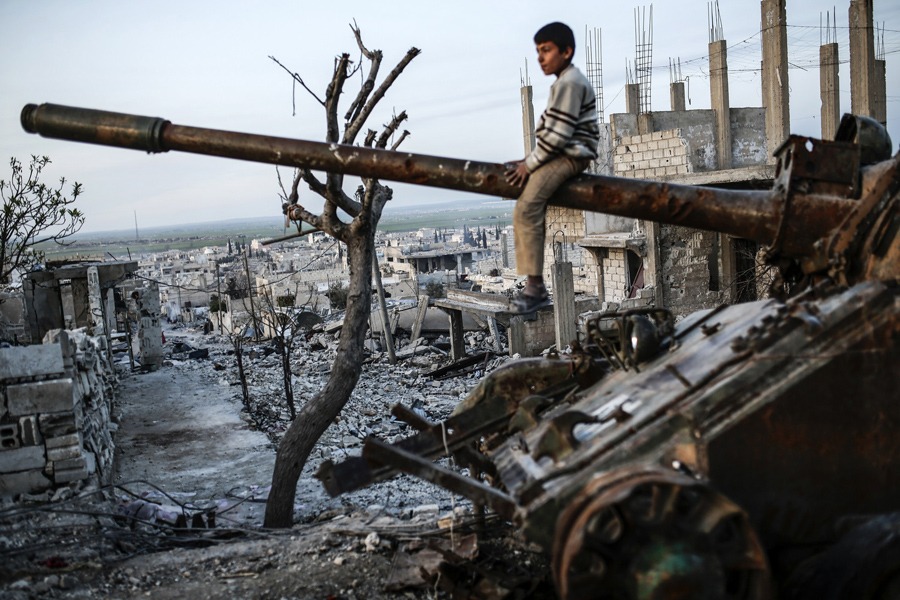Dr Ahmad Bakhshayesh, stating that the consistency of a country is related to its population makeup as well as geopolitical and geo-economic and national solidarity, emphasized: “From the First World War onwards colonialists generally sought to disintegrate large states to reduce their power. For example, Iran was once an empire, but over time they weakened it.”
He added: “The colonists by fomenting separatist sentiments in a country that is capable of defending itself are trying to create conditions so that the said country would be unable to defend itself in general terms.”
Referring to the developments in Yemen and the efforts of the big powers to divide the country, the university lecturer said: “Throughout Yemen’s history, we have had North Yemen and South Yemen, and the two Yemens have always been in conflict with each other. This was something Saudi Arabia favoured as it considers Yemen its backyard and through Yemen can reach Bab al-Mandeb and from there the Indian Ocean and skip the bottlenecks of the Strait of Hormuz and the Persian Gulf. About 70 million barrels of oil pass through the Persian Gulf a big portion of which is supplied by Saudi Arabia. However, Riyadh is keen to supply its oil out of the Persian Gulf through its backyard in order not to be exposed to Iran.
Describing Saudi interventions in Yemen, he said Ansarullah’s military build-up was crucial to the Yemen war, adding that Iran did two heroic acts: first when it shot down the US drone and the US was unable to defend itself; secondly when Iran seized the British oil tanker which sounded like a wakeup call to the UAE and Saudi Arabia. The UAE has come to the conclusion that when the United States and the United Kingdom are unable to defend themselves, how can they defend the Emirat if Iran attacked the UAE?
Bakhshayesh saying that power has been shifted in Yemen two or three times in the last hundred years added: “On one side of the Yemeni war, the United States, Israel, Saudi Arabia and the United Arab Emirates stand, and on the other is the resistance front. A field study will tell us that in this war, the resistance front has grown stronger by gaining new balance.
The analyst of international relations affairs said the designers of the disintegration of the Arab states were the colonialists, adding: “They have been seeking land, energy and the sea since ancient times. But they gradually realized that colonial policies were rejected by people around the world and therefore they changed their flag and logo calling it “globalization” – that is they entered these countries through the cultural door. The aim was to tell the Arab and Third World countries +you are Third Worlders and you don’t understand.+ +Because we are technologically advanced, so are we more culturally advanced.+ +If you also want to advance in technology, your culture must become like ours.+
“Their ultimate and main goal is to use their resources as long as they have resources,” he said. The resources God has given them include oil and energy. The two world powers that are formed alongside the regional powers are formed to create balance.
Bakhshayesh by saying that the colonialists did not first work for division, but rather work for the transfer of power, he explained: “For example, in Syria, they wanted to seize power from Bashar al-Assad; they could not; they fought with the help of American arms and Saudi money. After realizing that they cannot overthrow Assad they raised the issue of disintegration. The same is true in Yemen. From the beginning, they tried to marginalize Ansarullah and overpower Abd Rabbu Mansour Hadi, but failed and then raised the issue of division. If they still fail to reach that goal, they will gradually exit.
“I believe they cannot easily break up a country in today’s world because global awareness is soaring and countries themselves know that the smaller they become, the weaker they become, and their enemy becomes internal,” said the professor of international relations. Today, for example, the United States and Israel, which want to seize power in the region, are trying to break up countries like Iraq, Syria and Yemen to make it easier for smaller countries to deal with and control.
Noting that the greatest achievement of such actions is to create instability, Bakhshayesh said: “Westerners and colonialists have two goals: one is to have access to energy sources and the other to pass energy smoothly and steadily across the seas. Therefore, the best way to persuade countries to sell their oil easily and cheap is to make them unstable so that they would offer to sell off their oil easily. For example, at the time of Mossadegh (Iran’s Prime Minister 1951 – 1953) the British destabilized Iran and boycotted its oil; In addition, they said that we would not give money and give sugar for oil!”
He added: “Now that we are under sanctions we have to sell our oil at a lower price. Foreigners want cheap oil and uninterrupted supply. So they wage wars and cause instability to meet these two goals. They wage war by fostering a sense of independence and disintegration in some of the countries that are prone to it. South Yemen, for example, with North Yemen or Iraq and Syria are susceptible. Of course, I don’t think they can break up Yemen, because the balance has been in favour of the resistance front, so the likelihood of disintegration is low.










0 Comments